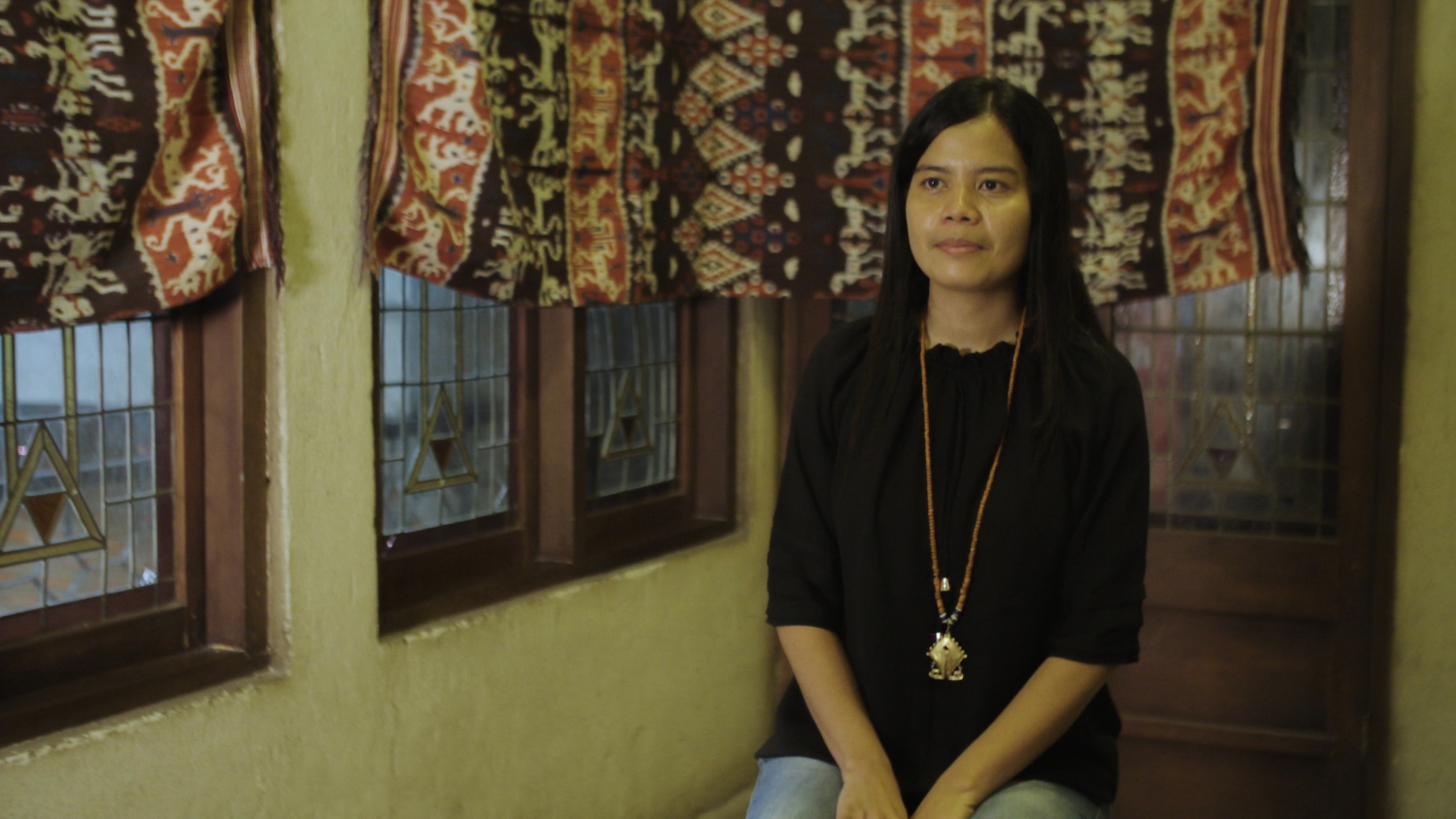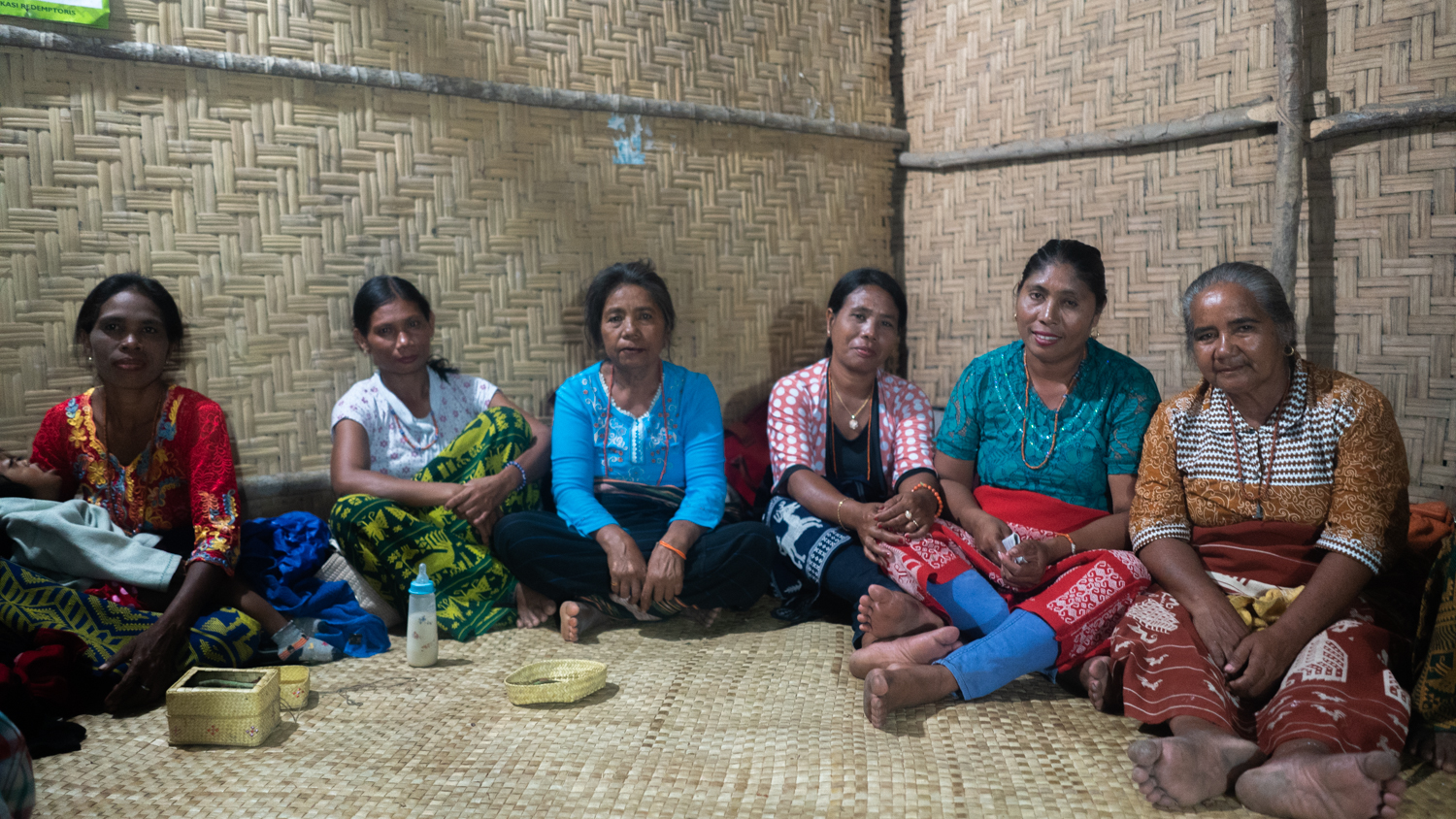Indonesian weddings are already among the most-expensive and lavish on Earth, but in the eastern island of Sumba, the cost of proposing to a bride-to-be can be so high that women can wait years before the proposal rituals are finally complete.
In Sumba, men must pay a dowry to the family of their future fiancée—a fee locally called a belis—according to local customs. The belis, which often takes the form of livestock, but in its more modern form is often cash, goes both ways. The groom’s family has to hand over large dowry of farm animals like buffalo and horses, as well as jewelry, and traditional blades in order to make the proposal official. The bride’s family then responds with a smaller gift of pigs and fabrics.
Videos by VICE
In our latest documentary on Sumba’s complex marriage rituals, we followed along with Piter Praing, a man transporting seven horses on a seven-hour journey to propose to his wife-to-be, Igamawarni Wulandari. We were unable to speak to the bride directly during the negotiation process, because she had to remain hidden from everyone according to tradition.
But it left us with a nagging question: what’s it like to be haggled over and paid for as a woman from Sumba? Is it degrading or honorable? Is it, like the local elders say, a way to ensure that families stay together, or is it part of a patriarchal system that puts a price on women’s heads?
We sat down with Melati Nasional Rambu Bangi, a Sumba woman now living in Jakarta who underwent her own belis negotiation. Melati told us that she felt that it was important to keep her local traditions alive.
“I’m proud to be Sumbanese,” she said. “I respect my customs and traditions, especially the belis.”

VICE: What does the belis mean for Sumba women?
Melati: Well, people outside our community may see the belis as something extraordinary, where men take on a dominate role during the negotiation process, and they also might think that our traditional marriages are like a business transactions where the bride is the goods. But, personally, I see the belis as a process of paying respect to the bride.
When a man proposes to a woman whose parents worked hard so she could get an education, the belis is his way of thanking and respecting that woman’s family. So I don’t see this as a business transaction at all. I’m a part of the process and I don’t feel objectified. I respect and appreciate the process and I actually enjoy being part of a very old Sumba tradition.
How is the price of the belis determined?
In the past, the belis was set according to a woman’s social status and her family’s socio-economic background. And back then, the belis was always paid with livestock or traditional items, so the belis can be very expensive.
The higher the status of the woman, the more respected the family, the bigger the belis. Social status is usually determined by a woman’s bloodline and caste. If the bride is of the maramba caste (the royals), then the belis will be huge. If the bride comes from a regular community, but is well-respected in her village, or is quite well-off, then there’s a chance her belis is going to be pretty high too.

So a woman’s accomplishments and level of education affect the price of the belis?
Yes, definitely. A woman’s accomplishments are an important factor when deciding on the dowry. If the woman is highly educated, and she is successful, then the belis will be really big. But, the family’s social status is still the most important factor.
Why is it that only men pay the belis in a Sumba marriage?
The bride’s family provides a belis as well to the groom’s family. But we need to give something more “feminine” like pigs. Why? Because pigs are usually raised by women on the farm. We can also give them traditional fabrics if the groom gives us buffalo, horses, or cows.
How is a woman involved in negotiating her own belis?
In general, it’s the bride’s family who decides the belis. But they discuss it with the groom’s family as well. In my tradition, the first and second process needs at least 25 horses, buffalo, or cow. There are also traditional objects like cloth, spears or mamuli (ornaments) involved.

Do you think that any part of this tradition is a detriment to Sumba culture and people?
It doesn’t really impact our customs, since we do it to respect our traditions. But, yeah, this tradition is pretty expensive. The groom has to spend so much money to provide the farm animals to the bride’s family. But the whole process has gotten far looser in recent years. With previous generations, the groom’s family would have to provide actual things like animals. But now, if they have 20 head of livestock, they can only hand over two of them and use cash to cover the rest. It’s all open to negotiation.
What happens if you decide not to follow tradition?
We believe that there are consequences for those who don’t follow our customs. The bad fortune could strike all at once or over time gradually. Since we don’t want to take the risk, we do as we’re told.
A lot of younger Sumbanese couples are still doing away with traditional ceremonies like this. Why did you choose to do it?
I’ll do all of the traditions and customs of my ancestors. My family is also really devoted to these traditions, so we have to practice these customs if we want to be part of our people. We really respect our parents and our ancestors. Sure, we could’ve married without following the customs, but we decided against that idea.




